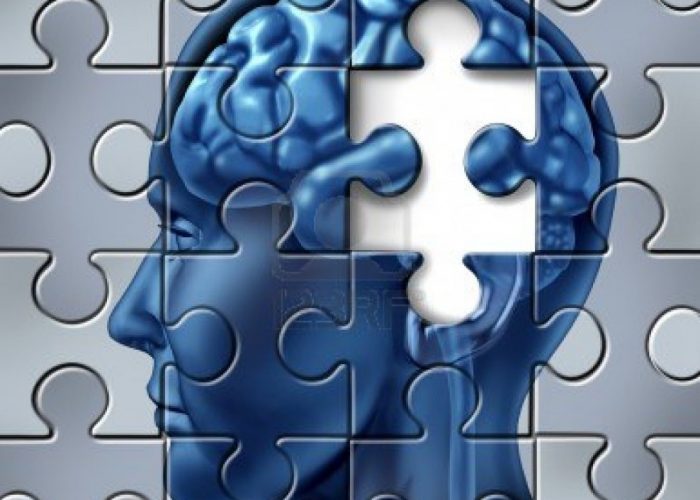


 CAN’T remember where you put your car keys? What was that you wanted to say, again? Or just what did you want to get from that room by the way? Now, what is the darned word you wanted to use, or the name of that thing? The whatchamacallit? For the life of you, you fumble along trying to remember stuff, and you just can’t readily put your finger on that which you are trying to remember. For minutes you flounder, until after a few sometime it comes flooding back – yes, a pen. A pen, that’s what I stood up from the lounge to get from the bedroom. Aah, the word I was looking for in that meeting this afternoon when I was addressing collegues is…
CAN’T remember where you put your car keys? What was that you wanted to say, again? Or just what did you want to get from that room by the way? Now, what is the darned word you wanted to use, or the name of that thing? The whatchamacallit? For the life of you, you fumble along trying to remember stuff, and you just can’t readily put your finger on that which you are trying to remember. For minutes you flounder, until after a few sometime it comes flooding back – yes, a pen. A pen, that’s what I stood up from the lounge to get from the bedroom. Aah, the word I was looking for in that meeting this afternoon when I was addressing collegues is…
Any of that sounds familiar? Be comforted. You are not alone. A number of people I know in their 40s and above often complain about how they don’t remember things as much as they used to. How their minds are not as fast and memories not as clear or long. Experts say this is a result of advancing in age. I took the liberty to research on the matter (from books, journals and the Internet) so we can provide those of us that are 40 and above pointers on how to guard against a slowing memory and jog it so it doesn’t forget as much.
Apparently it’s not a lost cause yet. There are ways you can overcome short term memory loss. But you just need to be sure what you are dealing with exactly. Here goes. How to overcome short-term memory loss Short-term memory loss can be a natural side effect of aging, or can be caused by disease, injury, stress, or as a side effect of drug use. Though it will take time, patience, and dedication, you can improve your memory. Here are some tips on reclaiming your short term memory.
Sharpen your mind
Your brain responds to activity and stimulation much like your muscles do – It gets stronger with regular exercise. When you learn how to do new things, your brain forms new neural pathways, helping it to grow and make connections to other pathways.
• Take up a hobby you have always wanted to try. Learn a new musical instrument, or enroll in college or a night class. This gives you longer-term goals that engage your brain on a regular basis with measurable outcomes.
• More immediate activities such as crossword or sudoku puzzles, or reading up on something you know nothing about stimulate your mind as much as doing new things. These tasks might seem difficult at first, and that’s good – challenging means your brain is being forced to work.
Interact with other people
Unlike a hobby, or a crossword puzzle or even learning new things, relationships stimulate your brain because they are unpredictable and always challenging, forcing you to stay alert and engaged. Harvard School of Public Health researchers found evidence that elderly people who have an active social life may have a slower rate of memory decline that those who are isolated.
Use mnemonics
This is a great tool for everybody to master. Mnemonics is the technique of attaching a word, phrase or image to an object. This skill can be very powerful and the memorization will stick in your brain like super glue.
Laugh easily and often
Laughter engages multiple areas of the brain, and listening to jokes while you try to figure out the punchlines will help boost overall learning and creativity.
Eat brain food
This means eating foods that help your brain function well. Foods with omega-3 fatty acids are recognised as very good for your mental acuity. Fish is also a ‘brain food’. Cold water fish like salmon, tuna, trout, herring, sardines are all rich in omega 3s. Eggs and organic milk have omega 3 supplements. Foods like soybeans, walnuts, pumpkins and pumpkin seeds, flaxseed (oil and seeds) are all rich in omega 3s.
Eat your fruits and vegetables regularly. Foods with antioxidants will protect your brain cells (and the rest of your body) from damage by free radicals, Broccoli, romaine, lettuce, spinach and chard are all great veggies to munch on. So are mangoes, melons and apricots.
A glass of red wine, to those who are game to such, is also great. Moderate alcohol consumption has been shown as a factor in improved memory. Green tea is also great. Limit your intake of fatty, processed foods or refined sugary treats. They are fattening, tooth-rotting, trans-fatty, nutritionally deprived foods that do battle in your body rather than support it.
Exercise
Physical activity can help increase blood flow to your brain, improving function. Do a short series of stretches as soon as you get out of bed in the morning to help your mind wake up. If you have time, aim for 30 minutes of moderate aerobic exercise three or four times a week, such as brisk walking, cycling, jogging or dancing.
Get plenty of sleep
An adequate amount of sleep each night will help your brain perform at its best. Aim, as much as possible, for seven to nine uninterrupted hours of sleep.
Other things to help you remember
Jotting things down, keeping a journal, using post-it note pads, phone reminders, using trusted friends are also ways you can take advantage of to help yourself remember stuff.
●The Fabulous Forties column is a celebration of an age that benefits from lived experiences, opinions, observations and sentiments associated with the “coming of age”. Contact: maggiemzumara@yahoo.ie Follow on Twitter@magsmzumara